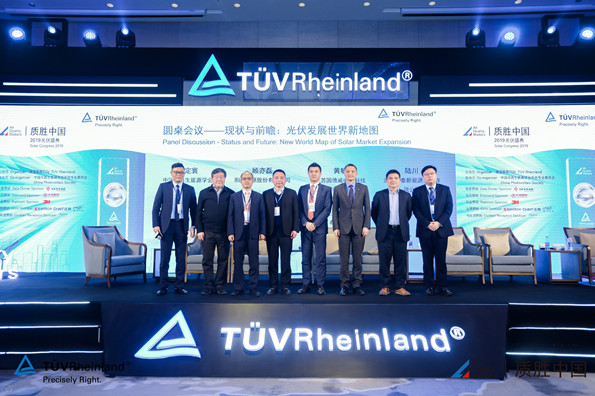
Ideological clashes inspire us, diverse perspectives guide us towards our future direction, and appropriate policy development reflects our yearning for the industry’s healthy and orderly development. On the first day of the “All Quality Matters” Solar Congress 2019, we invited 7 guests to share their ideas on the “Present and Future: New Map of Solar Development”. Following is their insightful discussion.
Introduction to Guests
[Host]
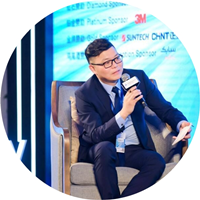
Chris Zou
Vice President Solar, TÜV Rheinland Greater China
[Guests]
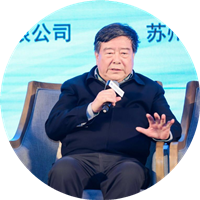
Shi Dinghuan
The 7th and 8th Chairman of China Renewable Energy Society and former State Council consultant
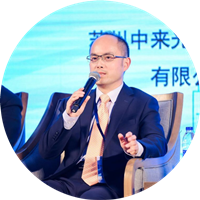
Gu Yilei
Vice President, Sungrow Power Supply Co., Ltd.
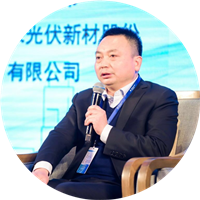
Huang Min
President, GoodWe (Jiangsu) Power Supply Technology Co., Ltd.
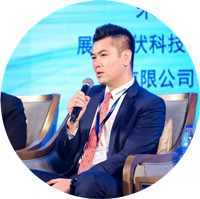
Lu Chuan
CEO, Zhejiang Chint New Energy Development Co., Ltd.
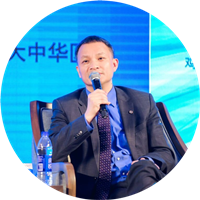
Luo Xin
Chairman, GCL System Integration Technology Co., Ltd.
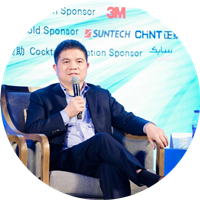
Lin Jianwei
Chairman, Jolywood (Suzhou) Sunwatt Co., Ltd.
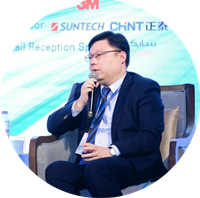
Song Yu
General Manager, UNIEXPV Technology (China) Co., Ltd.
Outlook on new policies
Chris Zou: After the “May 31st” policy was introduced last year, many enterprises suffered. The impact on listed companies was directly reflected in the stock market. Could you share your experience of dealing with the “May 31st” policy? The new policy is yet to be introduced in 2019. How will you cope with it?
Gu Yilei: “The ‘May 31st’ policy probably had a big impact on all equipment manufacturers. Sungrow, especially, has suffered considerably in the domestic market. Luckily, that effect was offset by our power stations and other businesses in overseas markets. So eventually, our overall revenue and profits were satisfactory. If the ‘May 31st’ policy hadn’t disturbed market needs and our internal plan, we would have grown faster.”
“In 2019, everyone is looking forward to a better market status. But as of now, we are still seeing two opposite sides at the same time. There are very few domestic orders and quite a few overseas orders. Components, inverters and high-quality products are sold overseas, contributing immensely to affordable internet access and construction of photovoltaic power stations in those countries. We hope domestic policies will be implemented as soon as possible so that better technologies can also be applied in China to support better development of the photovoltaic industry.”
Huang Min: Last year’s ‘May 31st’ policy led to an abrupt slowdown, and had a big impact on us. Distributed PV generation is GoodWe’s main business so our domestic performance has weakened. But as Mr. Gu just said, overseas markets are promising. Last year, our overseas growth was very satisfactory and our overall performance was also good. Despite ‘May 31st’, we made profits. We are now recognized by an increasing number of overseas clients. Many prominent companies abroad have also cooperated with us.”
“As a PV industry insider, I feel quite helpless about delayed introduction of new policies. PV is an excellent industry for China, and it is predominant globally. Why can’t we agree to use more renewable resources like PV? Oil is the cornerstone of the US’s economic hegemony. We don’t need to entangle with them on fossil energy at all. We have an edge in renewable energy like PV and wind energy. We can use them in large quantities and influence other countries through our application, thus establishing a good international image.”
Lu Chuan: “The ‘May 31st’ policy has both positive and negative effects. The biggest impact has been on our household business. The policy has greatly affected residents who want to purchase our household products. The second negative effect is a relatively large deviation in the forecast for projects spanning the ‘May 31st’ policy. The good news is that despite the domestic slowdown, our overseas business is running smoothly because of the changes in trade policies and lowering of industry chain price during Q3 and Q4. At the same time, I think the ‘May 31st’ policy also has an impact on overall environment. In the past, people may have been too optimistic about the PV industry. So, they chose radical actions and structure. Under this policy, those who didn’t have a solid foundation, had to leave. This helped consolidate the foundation of the entire industry.”
I expect that there will not be much space for cost reduction this year. So, I want to work on fair price and that’s going to be very difficult. Judging from demand forecasts, I think the fourth quarter will see a very strong demand. Electricity generation will contribute next year. Thus, our performance in 2019 will depend on growth in power stations in 2018 and our previous manufacturing structure. I believe a new policy will emerge sooner or later. There is much to do with respect to supporting, and we need to prepare a layout keeping in mind the overall situation and forecast for this year. As a price-based mechanism is adopted this year, people judge products from the perspective of cost performance and not efficiency.”
Luo Xin: “The ‘May 31st’ policy hasn’t affected GCL that much. Last year, our stock price rose by 18%, and we were the only one that showed stock price growth among listed PV companies. In March, we made a preliminary forecast but we didn’t expect the policy to be introduced so soon and forcefully. Last year, GCL transformed itself in these three areas: 1) promoting international business; 2) integration; and 3) engaging in semiconductor industry as its secondary business. Due to these transformations, we haven’t been seriously affected by the ‘May 31st’ policy. Another important factor is that we also focused on cash flow last year, and our cash flow is very good.”
“For the 2019 and 2020 outlook, the first point is scientific and technological innovation. In terms of fixed asset investment, we may need to invest in relatively high-end technologies. We also believe that integration of terminals will continue to strengthen in 2019 and 2020 and basic functions of PV + integration will be truly realized. Lastly, we will also develop investment strategies aimed at key regions and key markets to ensure our profitability in 2019.”
Lin Jianwei: “The ‘May 31st’ policy is a turning point for China’s PV industry to rethink its approach. The government encourages us to prefer quality to quantity. Today’s theme is “All Quality Matters”. How can we occupy 70% global market share for a long time? I think China’s PV industry depends on quality to win. At the same time, I think changes will occur in the old model of winning by scale, and the future will be an era of complementary and joint development.”
“Jolywood works on three kinds of businesses: 1) PV backsheet; 2) high-efficiency solar cells; and 3) household business to support people’s livelihood. We think PV is a meritorious industry. It solves environmental problems and also helps rural families earn money. This year, we will invest more in people’s livelihood. It doesn’t matter whether the RMB0.18 subsidy is available or not. We have already found solutions through technological value increase and model innovation, so we can continue to engage in this sector in future. We also hope that the government will consider different industries and different electricity prices before introducing new policies.”
Song Yu: “UNIEXPV began its business with solar cells, which are still our major product and business. Relatively speaking, we have fewer components. So, the ‘May 31st’ policy hasn’t affected our manufacturing significantly. Also, we engage in downstream investment and EPC projects. In the second half of 2018, it became more difficult to collect EPC-related payments because of the depression in the entire industry.”
“From a policy perspective in 2019, and based on fair price calculations, we have reached the point of what we can and can’t do. We are now more concerned about the cost of technology. This year’s policy is yet to be released. The new policy will have a relatively big market effect on PV-based poverty alleviation. For both manufacturing enterprises and downstream EPC enterprises, this is a growth point. These areas will probably be our key targets for this year’s development. At the same time, the market is more concerned about product efficiency and improvement of future power generation capacity. The operation and maintenance certification we are carrying out with TÜV Rheinland this week is also aimed to facilitate projects in the market in future, improve power generation efficiency and provide feedback to end customers.”
On trends and layouts
Chris Zou to Shi Dinghuan: “Chairman Shi, from your perspective, what expectations do you have from the new policy that is yet to be introduced?
Shi Dinghuan: As I mentioned in my opening speech, after years of efforts, China’s PV industry has become an internationally competitive industry among emerging strategic industries in the country. In recent years, the PV industry has accumulated numerous experiences in cost reduction, efficiency improvement, technological progress and system application. I think the government will attach importance to these development directions. We will narrow those directions. During this process, we will continue to be supportive of policy adjustments.”
“There are many difficulties along the way such as the subsidy issue raised by the new policy but I think that’s an inevitable trend. As many foreign experts have mentioned, it is the same all over the world. Like China, even India also strictly controls subsidies. However, these problems will not affect the fundamental trend of our development. Therefore, I am optimistic about the future. The government will strongly support this industry from the perspective of ecological civilization and green development, and will promote its development relentlessly.”
Chris Zou to Luo Xin: “Chairman Luo, how do you and your team persuade overseas clients to cooperate with GCL?
Luo Xin: “Our Group’s brand is GCL’s biggest edge. I always mention two key words when talking to clients. The first one is energy—GCL is the largest clean energy enterprise in the world, being three decades old. The second one is PV. It is indeed challenging for GCL to enter international markets. Last year, we endeavored on how to organically combine electrical energy with PV and it was a key strategy in our overseas market last year. The result was to focus on more than component sales. Through many of our EPC services, and even through investment, development, construction and operation of many power stations, we have pushed forward the business of our components, as well as PV or PV+. This is what gives us an edge among most first-tier manufacturers. In fact, as long as we leverage this, we will not have many problems.”
Chris Zou to Lu Chuan: “Chint Group covers several industries and its new energy business is developing steadily. Currently, you operate businesses on battery components and power plants. In 2019, how will you plan and balance your internal business structure?”
Lu Chuan: “The whole business is complex as you mentioned. As for the new energy sector, our company is engaged in battery pack production, factory operation and power station investment, while our sister company specializes in manufacturing of transformers, cables and switches. We provide complete solutions for customers, but success depends on market-based pricing mechanisms. My ultimate goal is to maximize profits. Despite our company’s numerous products and businesses, the personnel in charge of different sectors are empowered with the right of self-decision to maximize their profits, which is our company’s core business goal. Although we are engaged in many industries, our general operating principle aims at obtaining self-growth and sustainable profits from all sectors.”
Chris Zou to Huang Min: “In 2019, your company faces several challenges—becoming a listed company and facing external markets. What is your strategy under this circumstance?”
Huang Min: “All enterprises in China want to become listed companies, and so does our company. However, it is more important to make the enterprise better and more stable instead of striving to become a listed company through any means. After the new photovoltaic policies were issued on May 31st, 2018, our company has increased R&D investment without laying off employees, because we believe it is more important to consolidate the company than reducing the short-term impact on the capital market. The aim is to bring real value to customers, support the enterprise and employees better, and enable shareholders to get returns. Based on this, our company aims to list successfully. Therefore, the core pursuit of our company is to make ourselves better.”
A Message to the Industry
Chris Zou: “Finally, please share your expectations for 2019 for the photovoltaic industry.”
Shi Dinghuan: “In 2019, I hope that the government, enterprises, scientific and technological circles and investors can make joint efforts to achieve the goal for 2020 through practical actions and improved coordination.”
Gu Yilei: “I wish that we can work together in 2019 to ensure PV grid parity and embrace a broader photovoltaic market.”
Huang Min: “Energy reform is a general trend, through which renewable energy will gradually replace fossil energy. As a power & electronics enterprise, our company will make solutions for energy reform and consolidate all fundamental nodes for the Internet of Energy.”
Lu Chuan: “Although the 2019 policies for photovoltaic industry have not as yet been released, we believe that the global development trend of renewable energy will remain an irresistible force..”
Luo Xin: “The year 2019 will mark the realization of PV grid parity. It is not only an opportunity but also a challenge for the industry. All parties should make joint efforts to build a sound and competitive platform, and only then can we make PV grid parity come true.”
Lin Jianwei: “After achieving PV grid parity in 2019, we will witness the clear development trend of the photovoltaic industry. It will become a long-term industry. As enterprises specializing in photovoltaic industry, we should attach great importance to quality, technology, innovation and the protection of intellectual property, and achieve sustainable development of enterprises, so as to contribute to the industry.”
Song Yu: “Our determination and direction of developing new energy will remain unchanged, and PV grid parity will bring stable and better development trends in new energy.”



